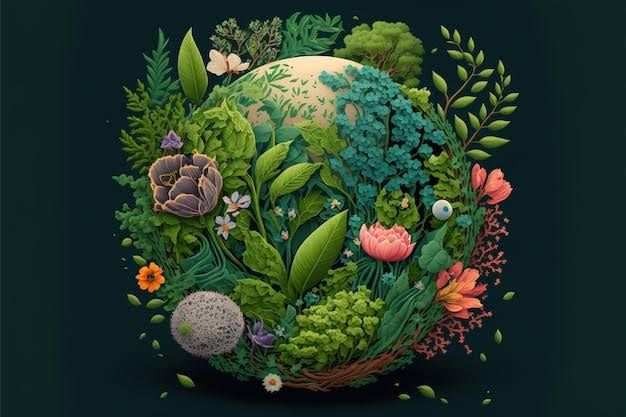Earth as a Living Organism: A Philosophical Perspective
The Earth, our home, has often been symbolized as a nurturing mother, providing sustenance and shelter for all living beings. However, this metaphor extends beyond mere symbolism. Philosophically and scientifically, many have argued for the notion of Earth as a living organism – a perspective known as the Gaia hypothesis. But

The Earth, our home, has often been symbolized as a nurturing mother, providing sustenance and shelter for all living beings. However, this metaphor extends beyond mere symbolism. Philosophically and scientifically, many have argued for the notion of Earth as a living organism – a perspective known as the Gaia hypothesis. But what does it mean to perceive our planet not just as a chunk of life-bearing rock but as a living entity?
Gaia Hypothesis: Earth's Homeostasis
Introduced by James Lovelock in the 1970s, the Gaia hypothesis posits that the Earth's physical and biological processes are interlinked in a complex system that maintains conditions suitable for life. Much like the human body regulates its temperature and other vital parameters, the Earth too has its regulatory mechanisms. Oceans act as the planet's kidneys, filtering out impurities and regulating salt concentrations. Forests, akin to lungs, breathe in carbon dioxide and exhale life-giving oxygen. However, this interdependence goes beyond mere functionality; it signifies a cohesive, holistic entity that is aware, adaptable, and self-sustaining.
Philosophical Foundations
The idea of Earth as a living entity is not new. Ancient civilizations, from the Greeks to the indigenous tribes of the Americas, perceived the Earth as a deity, a living, breathing entity deserving respect and reverence. Philosophers, in their contemplation of existence, have pondered the intricate balance and interdependence of life, suggesting that the Earth possesses a consciousness of its own.
If we were to accept this perspective, it reshapes our understanding of our role on this planet. No longer are we mere occupants or dominators; we become integral components of a larger organism. Just as cells contribute to the health and well-being of an organism, humans and all living beings have a role to play in the health and equilibrium of the Earth.
Anthropocentrism vs. Biocentrism
Modern societies, especially since the industrial revolution, have largely adopted an anthropocentric view, placing human needs and desires at the center of importance. This has often led to exploitation, environmental degradation, and a disregard for other life forms. However, viewing the Earth as a living organism encourages a shift towards biocentrism, where all life holds intrinsic value, and the well-being of the planet is intertwined with our own.
Implications for Environmental Ethics
If Earth is a living organism, our moral responsibilities extend beyond our species. Exploitative practices, deforestation, pollution, and other harmful activities are not just damaging the environment; they are wounds inflicted upon a living entity. This philosophical perspective provides a foundational argument for environmental conservation, sustainability, and respect for all forms of life.
The concept of Earth as a living organism challenges our conventional understanding and encourages a profound shift in perception. It calls for a deeper connection with our planet, a recognition of its intrinsic value, and a commitment to nurturing and preserving it. In a time of ecological crises, embracing this philosophy may pave the way for a harmonious coexistence with our planetary home, ensuring its health and ours for generations to come.




